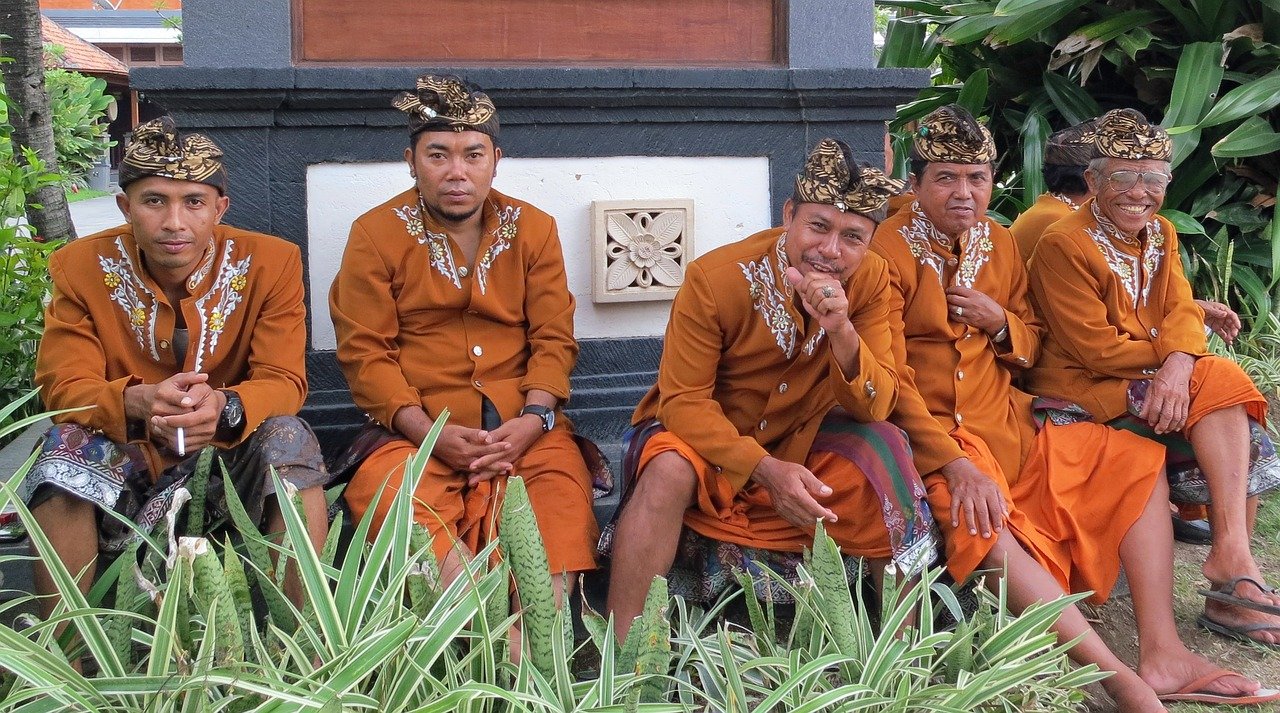What’s in a name: Is Balinese ‘religion’ agama Hindu?
What's in a Name? The Balinese religion, dharma and agama
Lots of people around the world have different words for their beliefs and traditions. Christians use a word called "religion" to talk about their beliefs. "Religion" means things like going to church, praying, and believing in God.
People in India and Bali didn't always have a word like "religion." They talked about their traditions using words like dharma and agama.
Dharma means all the rules and teachings for how to live a good life.
Agama means traditional stories and instructions from long ago.
Then missionaries from Europe came to India and Bali. The missionaries thought dharma and agama were types of "religion." They wanted people to convert to Christianity. So they started calling Indian and Balinese traditions "Hinduism." The missionaries said Hindus needed to change their dharma and agama to be more like Christianity.
Some Indian and Balinese people started using words like “Balinese Hinduism" and "agama Hindu." They wanted to show their traditions were as good as Christianity and Islam. But other people didn't want to change the dharma and agama they had been following for generations.
The words people use to talk about their traditions are important. Different words have different meanings. Calling something a "religion" changes how people think about their own teachings and practices.
So what's in a name? A whole way of thinking!
The words we use affect how we see ourselves and others. People from India and Bali have struggled with what names to use for their ancient dharma and agama. And they continue thinking about it even today.
This is the thesis behind an academic paper by Michel Picard, ‘What's in a name? An enquiry about the interpretation of Agama Hindu as "Hinduism”’ in JURNAL KAJIAN BALI, Volume 02, Nomor 02, Oktober 2012
The paper discusses the origins and evolution of the terms "religion", "agama", "dharma", and "Hinduism" and how they have been interpreted and applied to the Balinese traditions. Some of the interesting observations in the paper are:
Religion
The concept of "religion" originated from Christian theology and was later secularized in the West. It refers to a system of doctrines and rituals related to the sacred.
Many Asian cultures did not originally have a term equivalent to "religion". The notion was imposed on them through encounters with Christianity and colonialism.
Scholars have questioned the universality of "religion" as a category. It is a constructed concept rather than a natural category.
Agama
In Sanskrit, agama refers to traditional doctrine and scriptures, especially in Shaivite Hinduism.
In Indonesia, agama came to signify the Islamic conception of religion. It implies monotheism, prophets, holy books, and conversion.
Before agama meant "religion", it referred to customary law and moral traditions in texts like the Javanese-Balinese dharmashastras.
Dharma
Dharma has a broader meaning than religion, referring to cosmic, social, and ethical order.
Under British colonial rule in India, dharma was appropriated as the Hindu "religion" and interpreted narrowly.
Hindu reformers promoted inclusive sanatana dharma as the eternal universal religion, against exclusive varnashramadharma.
Hinduism
"Hinduism" was constructed by Orientalists and missionaries in the 19th century to designate Indian traditions as a unified religion.
Hindu reformers adopted the label "Hinduism" but disputed its principles. They aimed to remove "superstitions" and align with monotheism.
Agama Hindu
Similarly, educated Balinese adopted "agama Hindu" as their religion to counter Islam and Christianity.
But "agama Hindu" was interpreted differently between traditional nobles (agama Hindu Bali) and reformist commoners (agama Hindu).
After independence, Parisada Hindu Dharma aimed to universalize the Balinese traditions as agama Hindu Indonesia.
But recently, some Balinese have reverted to agama Hindu Bali to reassert their unique local identity.
Conclusion
The paper shows how Western-derived notions of "religion" have been complexly adopted and contested in India and Bali. The terms carry deep implications about authority and identity.
When you visit Bali, even if just for a week, having an understanding of some of these concepts brings the culture alive and helps you make meaningful connections with the Balinese you will meet and talk to.
Your driver, hotel staff, fast boat captain, and villa cook are living their culture every day and will be hugely impressed if you’ve taken the time to connect with their beliefs, past, present, and emerging.
Fascinated? You might also like to read about Significant ceremonial days in the Balinese Calendar and Orientation and Its Significance to Balinese Spirituality
Frequently Asked Questions
What does Om Swastiastu mean?
Om Swastiastu (Om Swastyastu) serves as a salutation among the Balinese community, functioning both as a greeting and a heartfelt plea for constant divine blessings upon the recipient.















Bali's remarkable rice terraces draw numerous tourists. However, could tourism pose a threat that the age-old Subak system might struggle to overcome?